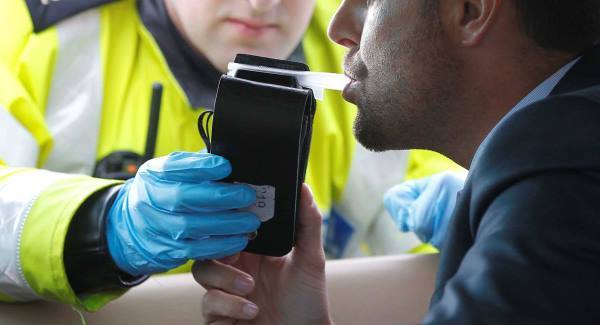 DOZENS of alleged Donegal drink drivers who have had cases dismissed or held up will now face prosecution after a Court of Appeal ruling today.
DOZENS of alleged Donegal drink drivers who have had cases dismissed or held up will now face prosecution after a Court of Appeal ruling today.
Lawyers had claimed the failure to provide statements in Irish and English was illegal.
The District Court in Dublin involving a case there agreed as did the High Court.
However three judges at the Court of Appeal today sided with the Director of Public Prosecutions.
In south Donegal Judge Kevin Kilraine has dismissed a number of cases but gave the state liberty to re-enter cases.
In the rest of the county District Judge Paul Kelly has adjourned cases pending the outcome of the Court of Appeal ruling.
In all around 1,400 cases across Ireland have been awaiting the outcome of today’s ruling.
The test case centred on Mihai Avadenei, (29), from 60 Lioscianan, Swords, Co Dublin, who had his legal argument supported by District Court Judge Conal Gibbons.
Mr Avadenei was stopped at 12.50am on April 21 last year at Wolf Tone Quay in Dublin by Garda Francis McMahon who alleged the motorist had been driving at 80kmh in a 50kmh zone.
Suspecting Mr Avandenei of drinki-driving Gda McMahon arrested him and took him to Store Street Garda Station.
Case records show that although the Romanian national had a good command of the English language an interpreter was provided.
A subsequent breath test carried out by Gda Colm McCuskey gave a reading of 52 microgrammes of alcohol per 100ml of breath. The drink-drive limit is 22 microgrammes of alcohol per 100ml of breath.
Gda McCluskey and the accused driver both signed the computer print-out.
Mr Avandenei was charged with drink-driving and released on bail.
He appeared before the Dublin District Court where his solicitor Michael Staines argued his client should have been given a read-out of his breath test from the intoxlyser machine in both Irish and English.
Mr Staines said the print-out submitted to the court was not a duly completed statement within the meaning of the 2010 Road Traffic Act as it was only in English.
He submitted that the rules providing for the form of such statements required them to be both in the English and Irish languages.
Therefore he argued that the document was not a duly completed statement and not admissible in evidence.
Today Mr Justice Edwards overturned the High Court ruling, meaning cases can now go ahead in the district courts.





